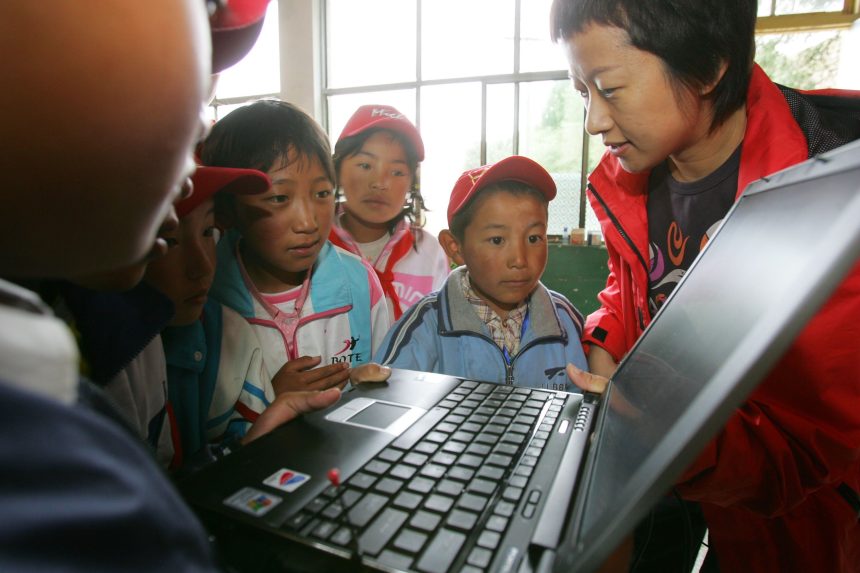A Communist Party mouthpiece is calling for the creation of a unified network of computing hardware that would span the entire country and make the utility as accessible and ubiquitous as water or electricity while supercharging the world’s second-largest digital economy. Such a boost to computing power – a key consideration in China’s new infrastructure drive – would allow more people and businesses to use digital services, People’s Daily said in a commentary on Tuesday. And in turn, it said, thousands of industries would be able to “provide better solutions for high-quality economic and social development”. “By connecting large and small power resources across the country to form a unified dispatched computing power network, computing power can be connected … and used immediately, like water and electricity,” it added. China premier balks at US blacklist with visit to sanctioned surveillance giant Government officials aim to link up existing hardware from supercomputing centres to private office-based systems so users can do more computations, including in the cloud, analysts believe. Chinese leaders may intend to tap into existing computing power, including the capacity of individual large companies, to expand networks that could help the country develop semiconductor chips, process e-payments or better harness artificial intelligence, said Andrew Collier, a China economist at Global Source Partners in Hong Kong. More than 41 per cent of China’s economic output comes from the digital economy. That term generally encompasses e-commerce, remote work, ride-sharing, cryptocurrencies and the use of artificial intelligence. China’s digital economy has also become the second-largest in the world, after the United States. However, only about three-quarters of China’s population is online, according to official figures released last year by the China Internet Network Information Centre. Others still lack access to computers or software – setbacks that are typical among migrant workers and rural citizens. E-commerce sales in China posted an 11.2 per cent compound annual growth rate from 2018 through last year, when they reached 13.8 trillion yuan (US$1.93 trillion) and accounted for more than one-third of the world’s total online payments, according to analytics firm GlobalData. Computing power particularly drives AI computations such as chatbots, access to big data, and cloud services. “Currently, fields such as artificial intelligence and big data analysis are developing fast, and the demand for computing power is still growing rapidly,” the newspaper commentary said. The commentary echoed calls from officials earlier in the year. Jin Zhuanglong, head of the Ministry of Industry and Information Technology (MIIT), said in August that China must speed up the construction of national computing hubs and data centres. China expects its collective computational power to increase 52 per cent by 2025. The nation’s computing power reached 197 EFLOPS by the end of June, compared with 180 EFLOPS last year, data from the MIIT showed, using a measurement of computing speed. By 2025, that number should reach 300, according to a new “action plan for computing-power-infrastructure development” that was jointly released by six ministries in October, led by the MIIT. An integrated computing power system is theoretically feasible, but it is not easy to establish Peng Peng, Guangdong Society of Reform Currently, China operates “a series of supercomputing centres” and berths some of the world’s fastest computers, said Peng Peng, executive chairman of the Guangdong Society of Reform. “An integrated computing power system is theoretically feasible, but it is not easy to establish,” Peng said, likening it to a nationwide electric company. “The connection of new energy sources and private power plants to the grid now involves issues such as safety, costs and pricing.” Stronger computing power could help narrow gaps in the tech infrastructure of developed and less-developed Chinese regions, said Yang Wang, a senior analyst with tech market research firm Counterpoint. “That access to fast networks and meaningful tech services could be as common as access to basic utilities like water and electricity,” he said.



